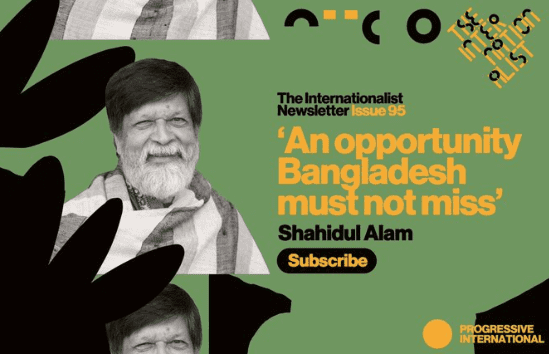Tomorrow, the 79th General Assembly of the United Nations will commence. Its crowning initiative — a high-level event featuring heads of state from across the world — is known as the Summit of the Future. Promotional material claims the event will “forge a new international consensus on how we deliver a better present and safeguard the future.”
Optimism for its outcomes should be measured. The “Pact for the Future,” the draft document for the Summit’s conclusion, is full of bold commitments for global action. But time after time, the G7 nations — those self-appointed leaders of the “free world” — have shown themselves unwilling and unprepared to deliver on their own commitments: on sustainability, on diplomacy, on support for their Global South partners.
Insanity, the saying goes, means trying the same thing again and again while expecting different results. To put a stop to the insanity, then — and to deliver on the aims set out in the draft “Pact of the Future” — a new approach is needed. We have no time to waste waiting for the North to turn empty rhetoric into meaningful action. We need a set of measures that the South can take immediately, collectively, ****and unilaterally to transform the global economic architecture in the service of peace, justice, and shared prosperity.
Over the past two years, the Progressive International has convened scholars, diplomats, and policymakers from across the world to articulate those measures in a Program of Action for the Construction of a New International Economic Order (NIEO) — a celebration and a renovation of the original NIEO UN Declaration won by the Third World five decades ago.
Back then, world leaders shared a similar premise to the Summit of the Future: a commitment “to eliminate the widening gap between the developed and the developing countries… and ensure peace and justice for present and future generations.”
Five decades later, however, that gap has failed to narrow. On the contrary, the old crises of debt, dependency, and under-development have combined with new and accelerating crises of climate to threaten not only the developmental prospects of the South — but also, in the case of many small-island states, their very existence.
That is why — to hold up a mirror to the Summit of the Future — the Progressive International is returning to New York City this Thursday, 12 September for a special NIEO 50th anniversary celebration, alongside alongside distinguished speakers such as Isabella Weber, Jayati Ghosh, Adam Tooze, and Branko Milanovic. There, we will present a the draft Program of Action to the public for the very first time — and we invite you to join us there.
The publication of the Program of Action concludes the two-year phase of our commemoration. But it remains a living document: a draft to be amended and adapted to the conditions of the nations and peoples that seek to implement its measures. The task of the Progressive International now is to accompany them on that historic journey toward the realization of a New International Economic Order.
Latest from the Movement
Inspired by Bangladesh, campaign for student unions in Pakistan launches
Historically, Pakistani students have led major movements, resisting authoritarianism and changing the course of history, most significantly during the massive student-led protests of 1968-69 that brought about the downfall of the Ayub Khan-led military regime. But since 1984, student unions have been banned on Pakistani campuses.
Inspired by the role of students in overthrowing the government of Sheikh Hasina in Bangladesh, the Khalq Youth Front is calling call for the immediate restoration of student unions across Pakistan as an integral means of organising political activity, cultivating intellectual debate, and holding university administrations accountable. You can add your name in support of their campaign here.
Are resource wars inevitable?
Water wars, oil wars, even lithium wars — as the climate crisis intensifies and the global population swells, we are often told that our future will be marked by a frightening scramble for natural resources.
“Increased competition over scarce resources is likely to contribute to internal tensions within countries, as well as external tensions between countries,” warned the Pentagon in 2021.
For Episode #8 of “The International,” a world-spanning video series brought to you by Jacobin and the Progressive International, renowned economist Richard D. Wolff asks: Is it true? Are we really doomed to a *Mad Max–*style future of scarcity, competition, and violence? Or is there another way? Watch the video here.
Peace and Justice Project International Conference
On Saturday 14 September, PI member the Peace and Justice Project is hosting its second annual international conference in London. Speakings include PI Council Members Jeremy Corbyn and Vijay Prashad and PI co-General Coordinator Varsha Gandikota-Nellutla. Find out more and book your place here.
Latest from The Internationalist
Coming up next week: Award winning photojournalist Shahidul Alam reflects on the recent student protests in Bangladesh and the aspirations of the Bangladeshis and their interim government.

Donate
Sharing stories and critical updates from the frontlines of the global struggle. Our weekly Briefing is sent to over 80,000 readers in five languages — to do this, we count on supporters like you.
Support comes in many forms: including sharing content and by making recurring donations. We greatly appreciate all forms of support in making solidarity more than a slogan.
